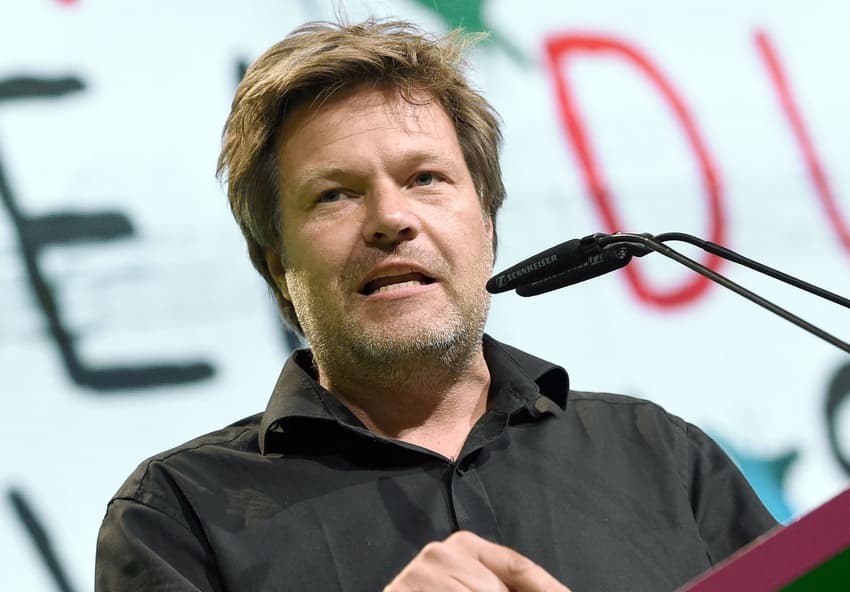North German state weighs up introducing unconditional basic income

Schleswig-Holstein’s new state government is considering a project to bring in an unconditional basic income. But the plans aren’t quite as advanced as some media outlets suggest.
The Flensburger Tageblatt (FT) first reported on Monday that the the new government in Germany’s northernmost state was dead set on testing out the controversial form of social security, whereby every citizen receives a flat monthly sum of money from the state regardless of whether they are employed or not.
“As a government we want to test out the unconditional basic income and make Schleswig-Holstein a model region,” the newspaper quoted the state’s new deputy minister-president Robert Habeck (Green Party) as saying.
The news spread like wild fire across social media, fuelled by the FT speculating that citizens in the northern state could get €1,000 a month under the scheme.
But a report in the Süddeutsche Zeitung on Tuesday has dampened expectations.
“Neither the discussion nor the examination of this topic has started. It is much too early to talk about individual concrete models,” the article quotes Schleswig-Holstein’s minister-president Daniel Günther from the conservative Christian Democrats (CDU) as saying.
The new state government is made up of the CDU as largest party and the Green party and the Free Democrats (FDP) as junior partners.
The coalition agreement between the parties, published on Tuesday, mentions the project in much more vague terms.
"We will create a 'laboratory for the future' in which we will look into security models such as a citizen’s income, an unconditional basic income, or the further development of the social security system,” the agreement states.
While the Green Party are for introducing an unconditional basic income, the FDP only support it as long as unemployed people strive to look for work, thus calling into question the idea of it being unconditional.
Any possible plan would replace other forms of social welfare, such as unemployment benefit and student loans.
Advocates of the unconditional basic income say it would do away with the huge bureaucracy needed to administer welfare payments, which costs the taxpayer billions of euros a year.
Finland introduced a pilot scheme at the start of the year, whereby 2,000 jobless people receive €560 a month.
Comments
See Also
The Flensburger Tageblatt (FT) first reported on Monday that the the new government in Germany’s northernmost state was dead set on testing out the controversial form of social security, whereby every citizen receives a flat monthly sum of money from the state regardless of whether they are employed or not.
“As a government we want to test out the unconditional basic income and make Schleswig-Holstein a model region,” the newspaper quoted the state’s new deputy minister-president Robert Habeck (Green Party) as saying.
The news spread like wild fire across social media, fuelled by the FT speculating that citizens in the northern state could get €1,000 a month under the scheme.
But a report in the Süddeutsche Zeitung on Tuesday has dampened expectations.
“Neither the discussion nor the examination of this topic has started. It is much too early to talk about individual concrete models,” the article quotes Schleswig-Holstein’s minister-president Daniel Günther from the conservative Christian Democrats (CDU) as saying.
The new state government is made up of the CDU as largest party and the Green party and the Free Democrats (FDP) as junior partners.
The coalition agreement between the parties, published on Tuesday, mentions the project in much more vague terms.
"We will create a 'laboratory for the future' in which we will look into security models such as a citizen’s income, an unconditional basic income, or the further development of the social security system,” the agreement states.
While the Green Party are for introducing an unconditional basic income, the FDP only support it as long as unemployed people strive to look for work, thus calling into question the idea of it being unconditional.
Any possible plan would replace other forms of social welfare, such as unemployment benefit and student loans.
Advocates of the unconditional basic income say it would do away with the huge bureaucracy needed to administer welfare payments, which costs the taxpayer billions of euros a year.
Finland introduced a pilot scheme at the start of the year, whereby 2,000 jobless people receive €560 a month.
Join the conversation in our comments section below. Share your own views and experience and if you have a question or suggestion for our journalists then email us at [email protected].
Please keep comments civil, constructive and on topic – and make sure to read our terms of use before getting involved.
Please log in here to leave a comment.